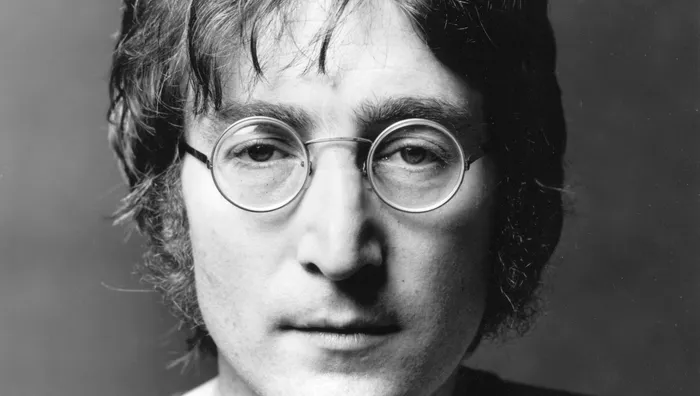On this day in 1980, the world lost a musical genius, John Lennon, in a tragic incident that shook the foundation of the music industry. As we reflect on his life and the possibilities that were cut short, let’s delve into a rediscovered 1975 interview, the events leading to that fateful night, and the lingering question – could the Beatles have reunited?

A Fateful Day
December 8, 1980, marked the untimely end of John Lennon’s life. As he left his apartment at the Dakota building in New York, little did he know that he would cross paths with Mark Chapman, his future assailant, not once, but twice. The first encounter, a seemingly innocuous request to sign an album, later turned into a chilling piece of evidence in Chapman’s trial.
Returning home that evening, Lennon’s plans to dine out were altered by a desire to bid his son goodnight. Little did he know that a tragedy awaited him just steps away from his front door. Mark Chapman, armed with a handgun and a copy of JD Salinger’s novel ‘Catcher in the Rye,’ carried out a senseless act that sent shockwaves across the globe.
The Impact of a Cultural Icon
The profound impact of The Beatles on global culture is hard to overstate. They weren’t just pop stars; they were architects of a musical revolution, shaping the 1960s with their experimentation in music, film, fashion, drugs, and spirituality. Their music became the soundtrack of a generation, connecting people to the world around them and to each other.
Lennon’s murder triggered an outpouring of grief. Fans gathered, leaving flowers and cards outside the Dakota building. Radio stations played nothing but The Beatles and Lennon’s songs, and cities worldwide held silent vigils to mourn the loss of a legend.
The Lingering Question
The decades following Lennon’s death have been haunted by one question: Would the Beatles have reunited to create more music if Lennon had not been taken from us?
In a 1975 BBC interview, Lennon hinted at the possibility. Reflecting on the band’s breakup in 1970 after the tumultuous Let It Be sessions, he admitted to a shift in perspective. Collaborations with George Harrison and Ringo Starr had already taken place, and he had rekindled his friendship with Paul McCartney.
“If we felt like making a record or doing something,” Lennon mused, “it would be worth it. If we got in the studio together and turned each other on again, then it would be worth it, sod the critics.”
The Beatles’ Musical Reunion
Lennon’s tragic death denied the Beatles the chance to reunite physically, but it didn’t mark the end of their musical collaboration. Fourteen years later, Yoko Ono presented a demo tape of songs that Lennon had written in 1978 to the surviving Beatles – Paul McCartney, George Harrison, and Ringo Starr.
The result was the release of the first “new” Beatles singles since their breakup: “Free as a Bird” in 1995 and “Real Love” in 1996. The surviving members added their own vocals and instrumentation to Lennon’s original demos, creating a harmonious blend of past and present.

The Unfinished Symphony
One track, “Now and Then,” attempted during the initial recording sessions but abandoned due to poor recording quality, resurfaced in 2022. Paul McCartney and Ringo Starr, now the only living members of the Beatles, revisited the song, completing it with the addition of George Harrison’s guitar parts recorded in 1995.
Producer Giles Martin, son of the Beatles’ original producer George Martin, contributed a new string arrangement. The final song, “Now and Then,” stands as a poignant, contemplative piano ballad credited to all four Beatles, marking a fitting final chapter to John Lennon’s remarkable musical legacy.
In Conclusion
As we remember John Lennon on the anniversary of his passing, we reflect not only on the tragedy of a life cut short but also on the enduring impact of his musical legacy. The Beatles’ journey, marked by innovation, collaboration, and timeless melodies, continues to resonate across generations. While the physical reunion of the Fab Four was robbed from us, their musical reunion, even in the face of tragedy, stands as a testament to the enduring power of music to connect, heal, and transcend time.
FAQs about John Lennon and The Beatles: A Musical Legacy
Q1: What happened to John Lennon on December 8, 1980? A1: On December 8, 1980, John Lennon was tragically murdered outside his home in New York City by Mark Chapman.
Q2: How did the events leading to Lennon’s death unfold on that day? A2: Lennon encountered Mark Chapman twice that day – once for a signed album request and later, fatally, outside his home. Chapman, armed with a handgun and a novel, carried out the senseless act.
Q3: How did The Beatles impact global culture? A3: The Beatles were cultural icons who revolutionized music, film, fashion, and more in the 1960s. Their music served as a soundtrack for a generation, connecting people worldwide.